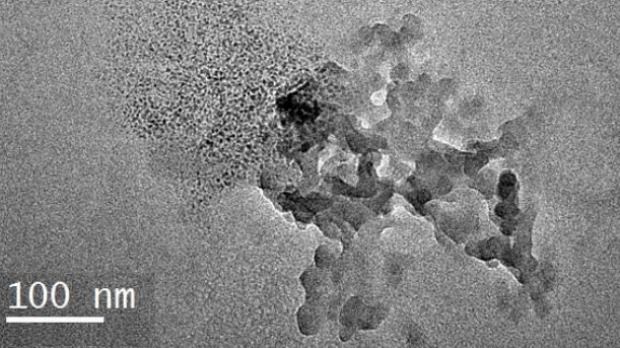An additive commonly used in lollies, biscuits, chewing gum and sauces has been found to initiate the early stages of cancers in animals, according to a recent study.
Titanium dioxide or E171 is used by the food industry to whiten and brighten food and other consumer products, such as sunscreen and cosmetics.
More National News Videos
Nanoparticles being used in food: report
New research shows evidence of widespread use of nano ingredients in popular food products despite the Food Standards regulator claiming there is no need to test for particles.
Exposure to nanoparticles of titanium dioxide and other additives has previously been shown to interfere with the immune system and cause cell damage, however such impacts remain under debate.
But a study by the French National Institute for Agricultural Research, recently published in the journal Nature, has shown for the first time that titanium dioxide nanoparticles are absorbed by the intestine and passed into the bloodstream of animals after oral exposure.
Researchers on the study exposed rats to regular oral doses of titanium dioxide for 100 days, in quantities reflecting that experienced by humans through food consumption.
Their results determined that chronic oral exposure led to a non-malignant stage of carcinogenesis, the process of normal cells becoming cancer cells, in 40 per cent of exposed animals.
The findings of the report prompted France's economic, health and agriculture ministers to make a joint submission to the National Agency for Public Health Food, Environment and Labor to determine consumer health risks, with the findings to be released at the end of March.
In Australia titanium dioxide is an approved food additive and has been used in consumer products for decades.

Food Standards Australia and New Zealand has claimed for many years that there is "little evidence" of nanoparticles in food because no company had applied for approval. Therefore it did not test for nor regulate the use of nanoparticles.
However testing by environmental group Friends of the Earth in 2015 found nanoparticles of titanium dioxide and silica (which prevents caking) in 14 popular products, including sugar-coated chocolates, white sauce and salad dressing.

In 2016 FSANZ published a review into the oral ingestion of titanium dioxide, including in nanoscale form, finding that there was not strong evidence to support claims of significant health risks.
A FSANZ spokesperson said it was aware of the recent French study and was "currently undertaking a review of its findings".

"Titanium dioxide has long been known to contain nanoparticles and these will have been present in the material used in the toxicity tests that supported approval of titanium dioxide as a food additive," he said.
"This new study needs to be considered alongside all the available evidence relating to the safety of titanium dioxide in food," he said.
FSANZ also highlighted that the study administered titanium dioxide in solution rather than in the animals' food, making it difficult to assess the hazards of the substance in food.
Friends of the Earth's emerging technology campaigner Jeremy Tager said the results of the study validated community concerns about the widespread use of titanium dioxide in food.
"Our view has been there is still a large degree of uncertainty, and we feel food shouldn't be going onto the market until its properly tested and that's not happening," he said.
"I think in any sane regulatory situation this would be an immediate ground to ask manufacturers to remove the nano from the way they manufacture these additives until the result is confirmed."
At least four food processors and retailers in France have announced their intention of removing titanium dioxide nanoparticles from their products in the near future.

















